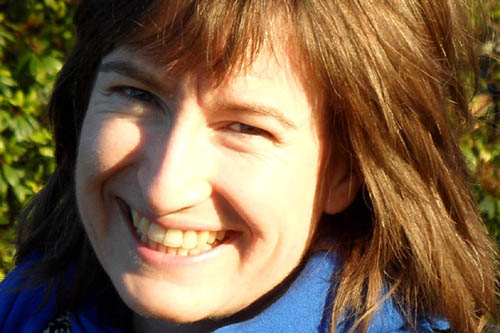By Sam Whyte
THE sound of silence is key to better behaviour and exam results in Scottish schools, an academic claimed today.
Dr Helen Lees, an education researcher at Stirling University, said silence techniques including quiet spaces, silent reading and even meditation could work wonders.
Dr Lees said she had been “knocked back” by the sheer amount of noise in schools.

But rather than advocating old-fashioned teacher-enforced silence as an extension of discipline, Dr Lees says modern youngsters should aim for a “silent state of mind”.
She said: “I was a trainee teacher at the school I was at ten years previously and I was knocked back when I noticed how much noise there actually is in schools.
“There was an endless procession of bells ringing and people shouting – there was nowhere to chill out and just relax.
“I then decided to look into the importance of silence and how a calm state of mind benefits people.”
Dr Lees, who works at Stirling’s Laboratory for Educational Theory, has outlined her ideas in a controversial new book called Silence in Schools.
She said: “This new employment of ‘strong silence’ is what education has been waiting for.
“‘Weak silence’ has been used in the classroom for a long time, but traditionally this weak form harnesses silence as an oppressive tool, whereby children are punished or controlled through the process of enforced noise cessation.”
Instead, she advocates techniques such as meditation, mindfulness, pausing, silent reading, silent moments, and quiet spaces.
She claims new “quiet rooms” could be seen in schools in the next five to ten years and it is even possible the same principles could be applied in prisons to try and calm inmates and young offenders.
Dr Lees uses testimonials from teachers across the country who have introduced their own takes of silence techniques to outline the positive effects these initiatives have had.
She said: “This is a brand new area of research but what is clear from the anecdotal evidence supplied by teachers is that this works.
“Teachers have said behaviour improves, grades improve and the overall atmosphere in the school is better.”
She added: “Where people find their ‘quiet space’ doesn’t matter – it could be anything from reading a book to sitting alone for ten minutes.”
“As long as it de-stresses them and it doesn’t affect others then it can only be good thing.
“For too long schoolkids have been told to shut up and silence is often used as punishment or a negative behavioural control method – but this is a positive one.
“If a pupil is in class at 10.15am on a Monday morning and they think ‘I just don’t feel like talking today’ then they shouldn’t have to – it’s their right to stay quiet.
“It’s for situations like this that people should have a place where they can go just to chill out.”
“I should point out though that no one should be forced to be quiet – it’s all about just having the opportunity to be quiet if you want to.”
Dr Lees admitted the techniques “may turn people’s understanding of what education ought to be on its head” but said it would be wrong to dismiss it as “hippy nonsense”.
It is “based on testimonial evidence and scientific research, the findings of which cannot be ignored,” she said.

